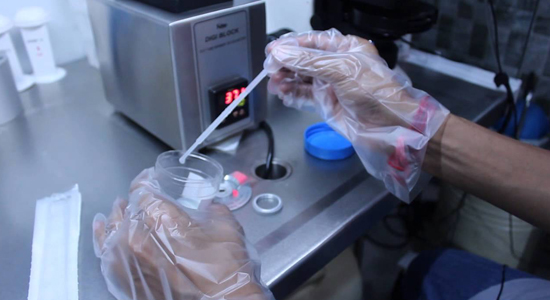Scientists have taken an important step towards creating artificial sperm and eggs for infertility treatment by recreating the way the human body produces sperm.
The team of researchers, from Gurdon Institute, University of Cambridge, are considered to be the first team to have attained what is referred to as the “halfway point” which a significant landmark on the path between stem cells and immature sperm.
This pathway, which the team are making effort to track and understand involves embryonic cells turning into immature sperm via a series of complex steps known as meiosis.
Cells follow similar journey for up to eight weeks before taking seperate directions, depending on whether they’re to be sperm or eggs.
Earlier, the team had managed to track this pathway to the four-week mark.
Now, using new technology in the form of miniature artificial testicles called “gonadal organoids”, the pathway moves towards exceeding this point and gaining new, deep insight into the process of sperm creation.
The development could provide relevant clues to the cause of infertility, and potentially offer new hope to infertile couples.
Clinics in Britain are banned from using artificial sperm or eggs, but if scientists could perfect the reproduction of germ cells (which the team says could be possible in around a decade), regulators could face pressure to change the rules.
Gay couples could conceive babies that are genetically linked to both of them.
Women could also opt for lab-grown eggs instead of taking fertility drugs.
But while the practical applications of this type of work have been demonstrated on mice, the benefits for humans remains fairly farfetched.
According to the UCL director of reproductive science and women’s health, Helen O’Neill, much of the ambition to recreate reproductive processes in the lab is to further understanding of these processes.
“It is surprising how little we understand about the fundamental dynamics of the beginnings of life,” he added.



















